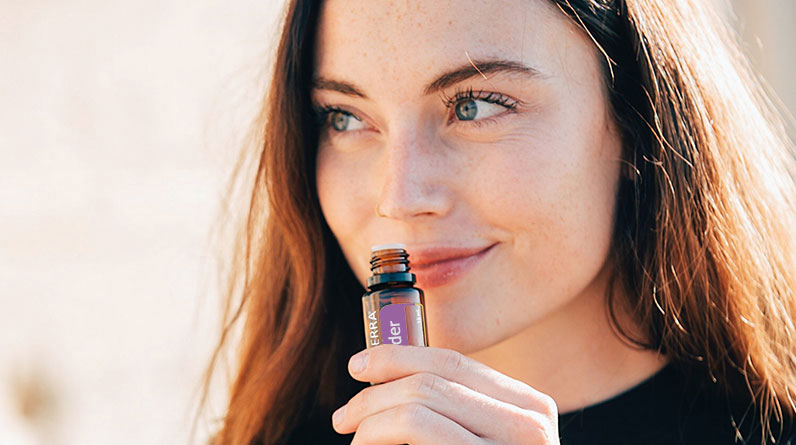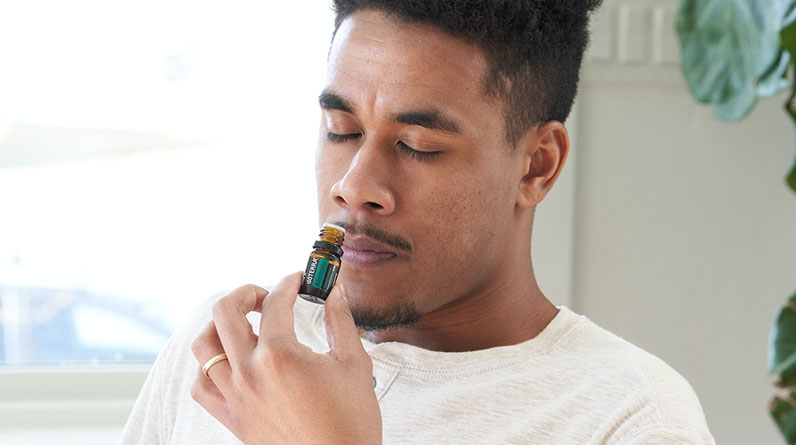
**Affiliate Disclosure**
Please note that some of the links on this site are affiliate links, and at no additional cost to you, we may earn a commission if you decide to make a purchase after clicking through the link. Any commission we make is income for the work put into supplying the information presented on this website.
.
Headaches and Migraines
Headaches are a debilitating condition, but essential oils can help to ease and relieve them. They can also help reduce anxiety and stress, which can trigger headaches.
Peppermint is one of the best essential oils for reducing headache pain. It is a natural painkiller and also improves blood circulation to the brain, which is incredibly important for treating headaches.
Peppermint
Peppermint essential oil has long been used as a natural remedy for a wide range of health problems, including headaches and migraines. This versatile oil has been shown to improve circulation, soothe the gut and relax tense muscles. It also has antibacterial, antiviral and anti-inflammatory properties, which can reduce the severity and frequency of headaches.
You can use a few drops of peppermint essential oil to ease a migraine or tension headache. You can breathe it in, diffuse it or apply it topically with a carrier oil (like jojoba oil). Its calming effects may help to alleviate nausea and improve concentration.
If you suffer from migraines, try applying peppermint oil to the back of your neck and temples. It can lessen the intensity of an acute migraine by stimulating blood flow and eliminating inflammation. You can also apply a few drops of peppermint oil to the bottoms of your feet, which can also relieve aches and pains.
Peppermint oil is a great choice for headaches and migraines because it stimulates blood flow and helps inhibit muscle contractions that may trigger them. This essential oil can be diluted with a carrier oil and massaged into the temples and back of the neck to reduce pain.
Eucalyptus
Eucalyptus is one of the most versatile essential oils and can be used for a variety of health problems. It can treat respiratory conditions like asthma and bronchitis, improve circulation in the body and help alleviate muscle pain. It can also help relieve nasal congestion and sinus headaches.
Eucalyptus has a herbaceous, minty aroma that is soothing to the nose. It is also known to be effective in treating colds and flus by stimulating the immune system. It can also be applied topically to the head to relieve migraines and tension headaches.
Eucalyptus can be used as a sinus cleanser to open the nasal passages and help clear mucus that can cause headaches. It can also be added to a warm-water bath to relieve sinus pressure and ease headache pain. It can also be mixed with a massage oil for muscle relaxation and a boost of energy.
Rose
Essential oils are concentrated liquids extracted from plants and used as an alternative therapy. The most common use of essential oils is as aromatherapy, but they can also be applied to the skin.
Rose essential oil is one of the most popular essential oils for headaches and migraines. It contains a rich blend of nutrients that help reduce stress and ease pain.
It can be easily found in stores and is a good source of antioxidants, vitamin C, and flavonoids. The best quality rose essential oil should be certified organic and therapeutic grade.
When diluted in a carrier oil, it can be applied to the temples and forehead to relieve tension or migraines. It has also been shown to relax tense muscles and improve circulation.
Rose oil has also been shown to help with headaches caused by depression and anxiety. It is an antidepressant and has been used for centuries to treat stress and promote a sense of calmness.
In addition, it has been shown to increase sexual desire and satisfaction in men and women. It is also helpful in easing the discomfort associated with menstrual cramps and other aches.
Besides being a great aromatherapy oil, it can also be added to a warm bath or foot soak to soothe the body and mind. It can also be diffused in an aroma diffuser to create a soothing scent.
If you are interested in learning more about the benefits of rose essential oil, visit your local health store and talk to a pharmacist or herbalist. They can recommend a quality product and give you instructions on how to use it properly.
If you are experiencing severe or frequent headaches, contact a healthcare professional. They can help you understand the root causes of your headaches, provide lifestyle changes to ease your pain, and offer a treatment plan that may include essential oils.
Lavender
Lavender essential oil is a common natural treatment for migraines, as it can help calm the nervous system and relieve headache pain. It can also help relax and rejuvenate the body, reduce stress, and promote restful sleep.
Lavender is a common choice for treating headaches because of its calming and relaxing properties. It can help relieve stress, ease pain and promote restful sleep. In addition, it has anti-inflammatory and analgesic properties that can help relieve the pain associated with migraines.
Inhaling lavender can reduce the pain of migraines, and it can be combined with other essential oils for better results. A study in the journal European Neurology found that 71% of patients who were suffering from migraines reported a significant reduction in pain after they inhaled lavender oil.
You can diffuse lavender to soothe the mind, or apply it topically to your neck and temples to ease tension headaches. You can also make a pillow spray with 20 drops of lavender and 10 drops of sweet orange essential oil, which can help you fall asleep faster and feel more refreshed.
Several studies have shown that lavender can help relieve the symptoms of headaches, including stress, anxiety and nausea. It can also help treat sleep disorders, rashes, wounds, burns and insect bites.
According to a study published in the journal European Neurology, 71% of migraine sufferers reported that they experienced relief after inhaling lavender oil. Another study found that applying lavender oil to the face can help reduce the intensity of a migraine attack.
However, you should note that essential oils are not a cure-all for all kinds of ailments. If you have a sensitive skin or an autoimmune condition, you should check with your doctor before using any essential oil to see if it is safe for you.
In addition to helping relieve headaches, lavender can also improve cognitive function and mood. It has anti-inflammatory and antispasmodic properties, which can help reduce the severity of a headache.
For best results, choose a high-quality essential oil made from natural, organic flowers and plants. Look for a product that’s USDA certified, non-GMO and free of artificial fragrances.
Diluting lavender oil with a carrier oil, such as almond or jojoba, will help spread it evenly over your skin and minimize the possibility of a skin reaction. You should also do a patch test before applying the oil to your entire body.
In conclusion, essential oils can be a natural and effective way to treat headaches and migraines. Lavender, rose, eucalyptus and peppermint are some of the most popular essential oils used for this purpose, and each has its own unique benefits. Before using any essential oil, it is important to consult with a healthcare provider to ensure that it is safe and effective for you.


